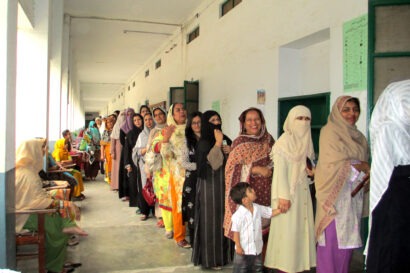Amid the Covid-19 pandemic, changes that might ordinarily take a few years are now occurring in the span of just a few months. The uptake of e-commerce and the adoption of video-conferencing, for example, have increased rapidly. This distinctive feature of crises—that they can accelerate otherwise slow-moving trends—can be harnessed by those seeking to create positive change, providing a rare upside in bleak and challenging times.
One area where this can be applied is taxation. n doing so, they can quickly build a stock of goodwill that will pay dividends well into the future in the form of higher tax compliance. On the other hand, if governments mishandle this historic moment, the damage done to their legitimacy may well dampen voluntary compliance and undermine tax revenues well after the pandemic has subsided.
According to the World Bank’s Innovations in Tax Compliance program, governments have three levers they can pull to boost tax compliance: enforcement, facilitation, and trust (“E-F-T”). Increasing enforcement makes it harder for taxpayers to evade their tax obligations, while improving facilitation makes it easier to fulfil them. Meanwhile, taxpayers are more likely to comply when they trust their tax payments will be spent effectively and fairly.
:
Phase 1: Relief
As we have seen in the first phase of the pandemic, tax revenues have fallen significantly across the world as tax administrations offered deferral of tax payments, businesses posted lower profits because of lockdowns, and individuals earned less income because of mandatory workplace closures. In addition, many governments have provided tax relief to households and businesses in the form of expediting tax refunds, waiving various penalties, and scaling back enforcement activities. Afghanistan, for example, has allowed businesses a one-time extension to defer business receipts tax payments from March to the May 2020, while Georgia is suspending personal income tax for six months for citizens on very low salaries.
If these measures can convince taxpayers that the government is there for them during the downturn, they will be more likely to comply with their tax obligations and possibly support a tax increase once the crisis recedes. The reverse is also true: if taxpayers feel short-changed, they are less likely to support higher tax burdens or enforcement actions in the future. For this reason, it is crucial that tax relief is distributed fairly, which requires a focus on assisting smaller businesses and vulnerable households, in addition to “bailing out” large corporations.
At the same time, tax authorities must also do all they can to ensure tax burdens do not actually increase during this phase, in particular for the poorest; as resources shift to the Covid-19 response, (informal) payments to access services might increase—especially at the local level—as may have happened in Sierra Leone during the Ebola epidemic. Instead, some countries are introducing temporary taxes or levies on the upper and upper-middle classes.
Phase 2: Restructuring
In the restructuring stage, people start returning to work and economic activity resumes, albeit with new restrictions. Governments will look to re-tighten enforcement to restore revenue shortfalls. Yet they should resist increasing tax burdens too steeply too soon to avoid suffocating a recovering economy. A focus on enforcement that pays little attention to improving facilitation or generating trust could backfire. Harsh revenue targets, for example, may create incentives for tax collectors to squeeze money out of an already devastated tax base, causing resentment and suppressing growth.
Instead, governments should take the long view and attempt to build on the goodwill generated in the first phase, which will be critical for achieving higher rates of compliance in the third phase. One strategy tax administrations can use is adopting a communications plan that explicitly links the temporary relief measures of Phase 1 to the need for the gradual resumption of taxation in phases 2 and 3, emphasising a sense of partnership between taxpayers and the government. In addition, facilitation measures introduced in the first phase that save taxpayers time, such as expanded e-services, should be kept if they make sense beyond the crisis.
Phase 3: Resilient Recovery
In the recovery phase, the economy should slowly begin to pick up again. In this phase, governments will likely attempt to reduce budget deficits by either raising taxes or expanding the tax base. If governments used the first two phases to bolster their legitimacy and secure taxpayers’ trust, higher tax rates and reductions in tax exemptions have a good chance of finding broad support among taxpayers.
Increasing taxation will be easier if it is supported by a strategy that seeks to foster trust. The urge to expand the tax base into the informal economy should be resisted, as this sector will have been hit particularly hard by the crisis. Instead, the equity of the tax system could be improved—for example, by closing domestic and international loopholes for high-net-worth individuals and corporations. Tax measures that contribute to a “green recovery,” such as carbon taxes, are also likely to enjoy wide support.
In sum, there may be a silver lining to this difficult period. If governments can seize this rare opportunity to redefine the fiscal contract through smart and carefully balanced taxation, they can build a more cooperative relationship with citizens, leading to long-lasting change.
This piece was first published on the World Bank’s Governance for Development blog here.



